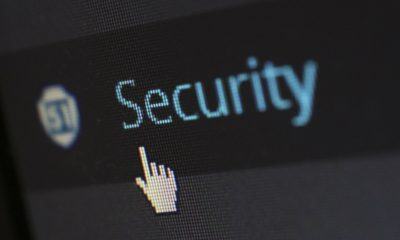Business
Smart email usage is crucial as cyber hackers get more clever
Because cyber hackers are getting smarter when it comes to their online assaults, employees have to be smarter in managing their email.

Because cyber hackers are getting smarter when it comes to their online assaults, employees themselves have to be smarter when it comes to how they manage their email. While anti-virus software and IT experts have their roles to play, staffers may not realize that they are the first line of defense when it comes to possibly spotting and arresting an attack. In so doing, they would have saved their organization a ton of grief. The reverse is also true. Automatic opening of links attached to a spurious but official-looking email can launch an attack that can breach data, steal information, and disrupt business severely.
One kind of virus known as ransomware bases its success on the willingness of the targetted victim to open it. The strategy that can effect this is called phishing. An email sent by the cyber hackers asks the computer user or staffer to click on a particular link that can activate the virus. Well-meaning employees do so because the emails look convincing.
This is where the sophistication of the cyber hacker comes in. Emails look like they come from superiors, colleagues, partners, and other shareholders that the staffer does not want to risk angering or displeasing. They would ask him to click on a link or download a supposedly important file for further discussion. Without thinking, the staffer does – and the attack is on.
Lily Hay Newman writes in Wired the level of sophistication that the hackers will resort to, in order to persuade you to open their email. They do more than their fair share of research to convince you that their attachment and/or link is vital to your interests. In Newman’s case, one phishing email had for its title an allusion to a court case where she was involved.

A virus called Ransomware can infiltrate companies and organization if the employee opened it from an email crafted by cyber hackers to look like it was sent by employers or colleagues. (Source)
Other cases had emails allegedly coming from big internet companies asking her to remove what was a spurious account (she had none). Another took on a logo similar to Amazon and warned her to manage her order in case she lost it—she did not order anything, and the logo’s difference from Amazon was evident to her.
IT News Africa gives further tips on how employees can spot and combat phishing and other attacks. Check the email addresses and see that they come from legitimate sources. Call the person who owns the email if you have to. If the web browser starts flashing that something is wrong with the email, don’t ignore it and immediately delete or quarantine the email. If the organization had changed administrators, then make sure that the proper logins and other confidential passwords are updated.
Writers, professionals, staffers, and business owners alike are leveling up their own knowledge of viruses and how to combat it because of attacks that made the headlines. First, it was Wanna Cry which decimated hundreds of thousands of computers around the world. Then, Petya made its own devastating rounds that destroyed data, damaged computers, and paralyzed both businesses and government institutions in many countries. IT security experts and industry analysts are now saying that creating a line of defense against these malware hackers is mandatory, and no longer just an option. Business owners who naturally want to protect their interests would agree.

-

 Africa2 weeks ago
Africa2 weeks agoAgadir Allocates Budget Surplus to Urban Development and Municipal Projects
-

 Cannabis5 days ago
Cannabis5 days agoSouth Africa Proposes Liberal Cannabis Regulations with Expungement for Past Convictions
-

 Biotech2 weeks ago
Biotech2 weeks agoVolatile Outlook for Enlivex Therapeutics as Investors Await Clinical Catalysts
-

 Markets7 days ago
Markets7 days agoWeather-Driven Supply Outlook Lifts Coffee Markets in Brazil and Vietnam


























You must be logged in to post a comment Login